It is a tragedy that the party that has ruined Zimbabwe, led by a man who was one of the chief perpetrators of its misery, has managed by hook or by crook to win a fresh mandate. The narrow margin of 0.8 per cent by which Emmerson Mnangagwa secured his victory in last week’s presidential contest will inevitably raise suspicions of foul play. But he will almost certainly be given the benefit of the doubt, not least by the British government. Mnangagwa, known as the Crocodile for his habit of biding his time and crunching his enemies as Robert Mugabe’s chief enforcer and election-rigger, has said some sensible things since overthrowing his mentor on the back of a military coup last November. But he did not deserve the enthusiastic support of the Foreign Office. It may even have tipped the balance in his favour.
British diplomacy in Africa so far this century has been ineffective and inconsistent. In the absence of any real guidance from high up in Whitehall, British policy on the ground in Harare, Zimbabwe’s capital, has been blatantly partisan towards Mr Mnangagwa. He has been presented as the man to bring back stability and friendly relations in the absence of Mr Mugabe and his power-seeking wife. Poised to take over, she would indeed have been even worse. But this did not mean that the Crocodile was the long-term answer. The alternative, Nelson Chamisa and the Movement for Democratic Change, was far from ideal. But the ruling party and its leaders are irredeemably crooked, brutal and incompetent. Virtually any alternative would have been better.
The first reason for Britain’s wayward diplomacy in Africa is a dire shortage of cash, resulting in the gutting of embassies across the continent. At the same time, the British government’s aid arm, the Department for International Development (DfID), has grown out of all proportion. The overall Foreign Office budget is around £1.4 billion, and has shrunk by more than 40 per cent since 2010. Britain’s overseas aid budget, disbursed mainly by DfID, is £13.4 billion — and rising, since it is guaranteed by law to amount to at least 0.7 per cent of GDP; if the economy grows by, say, 2 per cent, aid should swell by £250 million-plus a year. Sometimes it is even unable to spend it all.
This skews policy, especially towards Africa. Hard power, devious diplomacy and old-fashioned, hard-nosed realpolitik are out. Soft power, the pretence of being equal partners rather than bargainers and benefactors, and the almost unconditional distribution of aid are in. Yet DfID officials, loaded with cash, are often taken more seriously than diplomats. Indeed, the latest trend (in countries such as Zimbabwe and Ethiopia) is for DfID officials to be promoted to ambassadorships. They tend to be better at dishing out aid than doing diplomacy.
In the past ten years, the British taxpayer has given nearly a billion pounds in aid to Zimbabwe, with not a shred of thanks from its government. When I spoke to Mr Mnangagwa a few months ago, he explained the disastrous state of the economy by fatuously blaming British and western sanctions, though they were targeted solely on Mr Mugabe’s hundred or so wickedest villains (and were lifted several years ago on all but the two Mugabes). It was a falsehood widely believed across Africa. Yet our diplomats, so thin on the ground, have been too mealy-mouthed to be able to expose such rubbish.
DfID’s instinct is to coddle regimes, irrespective of their merits, because the purpose of aid, in donors’ pure minds, is only to help the poor, not to reward regimes for good governance or to win favours for Britain, for example by supporting it in such forums as the United Nations. An appalling example occurred last year when, for the first time, the British judge on the International Court of Justice, the UN’s judicial arm, failed to be re-elected because too few of our African friends backed his candidacy.
The size of the Foreign Office staff in Africa, marginally increased of late, is pitiful. A recent British minister for Africa lamented that in 24 of Britain’s smaller embassies and high commissions (i.e. missions to Commonwealth countries) in sub-Saharan Africa, the total number of diplomats (excluding local hires and DfID staff) is around 40, meaning that in most of the lesser ones there are no more than two and often just a single British diplomat. The total number of British missions in sub-Saharan Africa is 32 out of a possible 48. Boris Johnson promised to set up a permanent mission in Chad, beef up representation in the Sahel (that trans-African belt of shaky states just south of the Sahara) and reopen offices in Lesotho and eSwatini (formerly Swaziland). But compared with a generation ago, British representation in swaths of Africa has dramatically shrivelled — along with influence.
Another disastrous habit is the rapid turnover of Britain’s ministers for Africa, most of whom have had minimal prior knowledge of the continent: there have been six since 2012. In the many African countries where institutions are weak and power concentrated in a few or even a single pair of hands, personal relations and continuity are vital. Equally unwise is the almost total winding down of Britain’s intelligence service in Africa. Again, in countries where power is often administered through nefarious means and murky channels, secret intelligence is disproportionately valuable. But it has gone.
British policy has veered between spasms of attention to counter-terrorism and hugely generous handouts to countries such as Ethiopia and Rwanda, with little regard for human rights or our own self-interest. This is soft-headedness, not soft power.
France, by contrast, spends about 40 per cent as much on aid as Britain does, with a presumption that its recipients, most of them francophone, will back French foreign policy — or the handouts and military support will be withdrawn. French aid, unlike Britain’s, is mostly ‘tied’, meaning that Benin or Cameroon, say, must take pumps or technology from France, if they are to get them gratis or on generous terms. France, which has 42 embassies in sub-Saharan Africa, has seven times as many diplomats as Britain does there. It is far readier to deploy hard power, too. It has more than 8,200 troops currently in the region; Britain has 450. France plays a much punchier military role in the Sahel (its old colonial patch) than Britain does in Nigeria (where a jihadist revolt still rages in the north-east).
Still more strikingly, French leaders take far more trouble simply to talk to their African confrères. Since 2010, France’s two presidents have visited 27 sub-Saharan countries, some of them several times over; Emmanuel Macron has already notched up eight, the last being Nigeria. Apart from David Cameron’s flit to attend Nelson Mandela’s funeral in 2013, no British prime minister has visited sub-Saharan African since 2011, a truly shocking sign of diplomatic negligence. According to a recent report, China’s top three leaders, President Xi Jinping to the fore, have made 79 forays to Africa since 2007. Incidentally, when the British judge was chucked off the UN court, his French counterpart got the most votes in the UN General Assembly among those elected. As a former British ambassador lamented, ‘Our people didn’t really know who to call.’ African governments have noticed. They don’t like being snubbed. They feel Britain, at the highest level, has turned its back on Africa.
DfID has got too big for its boots and should come firmly under the Foreign Office’s thumb, as it did before Tony Blair’s forceful aid minister, Clare Short, insisted on it becoming an independent powerhouse. Rory Stewart, holder of the Foreign Office’s Africa post for an absurdly brief seven months until February, managed to acquire a double-hat to oversee DfID’s Africa policy as well. He also commissioned an interdepartmental strategy paper for Africa, soon to be circulated by No. 10. Though the 0.7 per cent figure has been enshrined in law, it should be amended or subjected to every sort of wangle in order to switch cash to the Foreign Office, enabling several hundred more diplomats to be deployed across the continent. You cannot conduct shrewd diplomacy if you have no one on the ground. Just think: if Britain’s aid allocation, spent mainly by DfID, were trimmed by only a tenth and the cash saved were handed over to the Foreign Office, our threadbare diplomatic service would almost double its budget at a stroke. Our diplomats might then have time to cultivate Zimbabweans of a less scaly and reptilian kind.
Got something to add? Join the discussion and comment below.
Get 10 issues for just $10
Subscribe to The Spectator Australia today for the next 10 magazine issues, plus full online access, for just $10.
You might disagree with half of it, but you’ll enjoy reading all of it. Try your first month for free, then just $2 a week for the remainder of your first year.

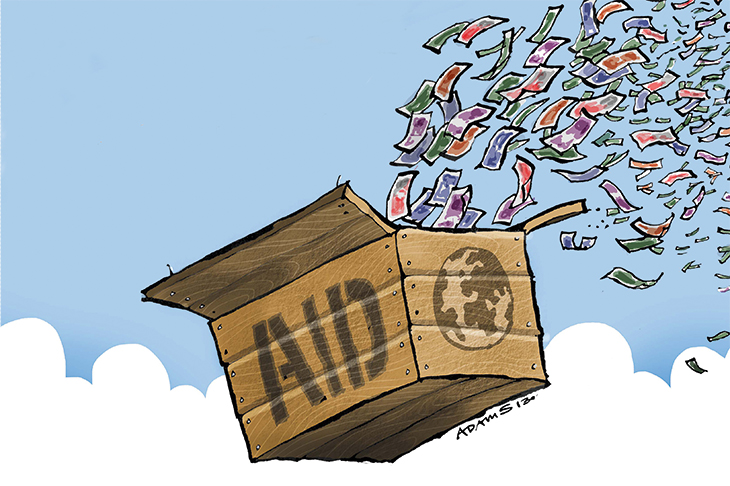
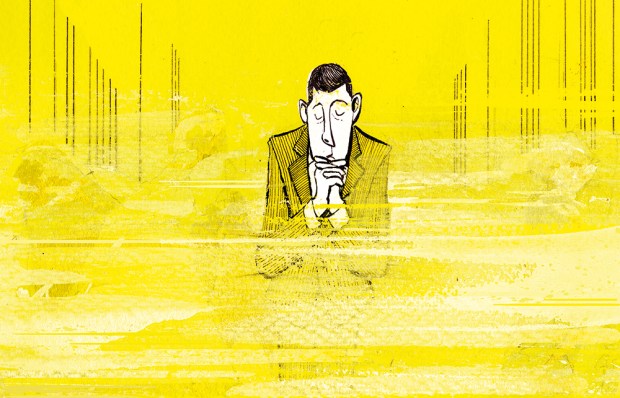
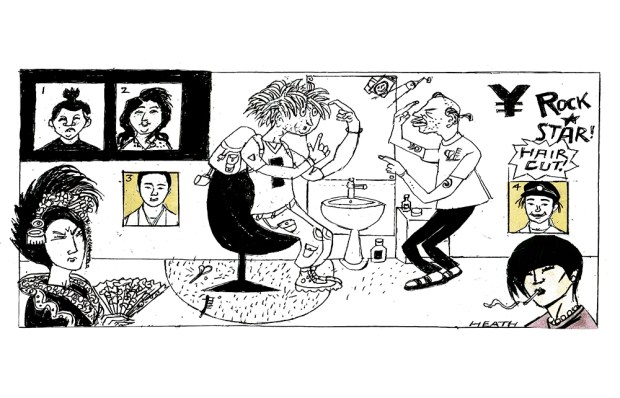

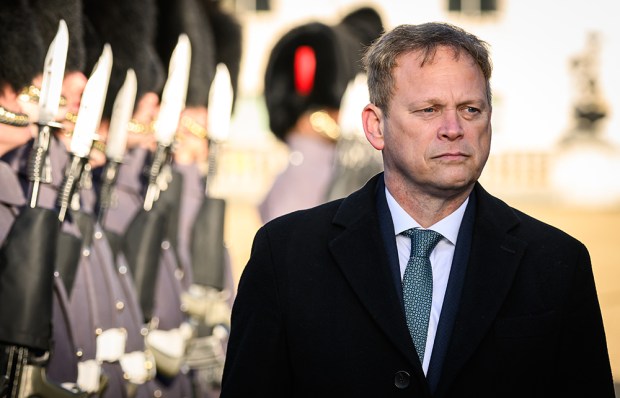
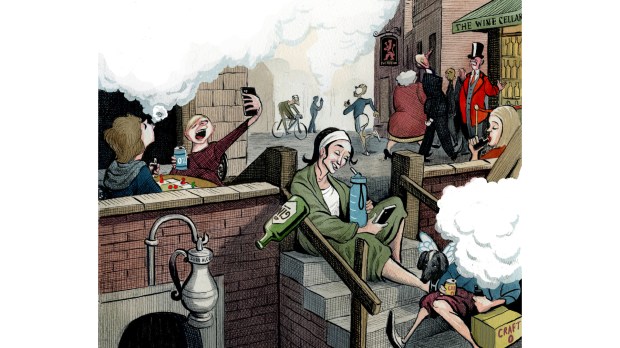







Comments
Don't miss out
Join the conversation with other Spectator Australia readers. Subscribe to leave a comment.
SUBSCRIBEAlready a subscriber? Log in